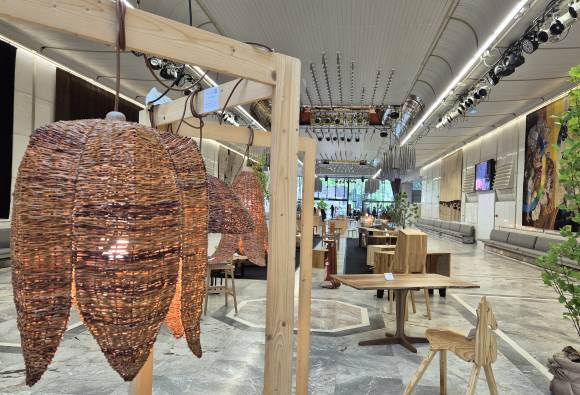
Charm of Wood 2025
Organised by: Association for the Protection of Wood of Slovenia and the Wood Council
Society is becoming increasingly aware that progress can no longer be justified at the expense of nature or human health. The future of humanity will not depend on how to produce ever more energy, but on how to manufacture products and construct buildings using less energy, fewer greenhouse gas emissions, and with a reduced environmental impact.
Only once we achieve an economic-environmental balance—and when the cost of a product includes the damage caused by climate change, natural disasters, and pollution—will it become clear what is economically justifiable to produce for the benefit of humanity. Today’s infrastructure and buildings, even when constructed with modern technologies and materials, often release greenhouse gases into the atmosphere during production—gases that, in turn, fuel the very disasters that destroy these so-called “advancements,” as seen during the storms in the Koroška region.
Climate change demands action—not adaptation. Adaptation alone will lead to even greater emissions and more severe disasters, pushing us toward environmental collapse. The fight against climate change and the protection of nature must become a central challenge for humanity, steering the economy toward sustainable, "green" materials. In this context, wood—as a renewable biomaterial—will play a decisive role.
Wood products can significantly reduce carbon dioxide emissions by acting as carbon sinks, which is crucial for mitigating climate change and protecting the environment. Therefore, wood and other biomaterials should be at the forefront of Slovenia’s—and the world’s—economic policy, shifting away from energy-intensive metal and plastic industries toward a green economy. After 200 years, it is high time we moved from an industrial revolution to an environmental evolution.
Slovenia has no mineral wealth and lacks its own energy sources. However, we do have forests. Wood can be processed into high-quality products and used in construction with minimal energy input and environmental impact. This natural wealth offers an extraordinary opportunity to redirect Slovenian industry toward an energy-efficient and environmentally friendly “bio-economy.” Wood must be valued primarily as a construction material, not merely as fuel—a misperception perpetuated for 30 years by the one-sided financial support of Slovenia’s Eco Fund, which has negatively affected both the climate and the environment.
Sustainable development begins with reducing energy consumption. The solution is not in alternative energy sources (AES), but in alternative raw materials (ARM). Slovenia’s economic vision must therefore shift fundamentally toward supporting the use of environmentally sound materials like wood.
To promote wood processing and the use of wooden products, the Slovenian Wood Protection Society and the Council for Wood—together with the Public Agency SPIRIT Slovenia—have, since 2009, organized the Charm of Wood exhibitions each year in Cankarjev dom and across Slovenia. Every product displayed at these exhibitions is labeled with the amount of CO₂ it helps to reduce in the atmosphere, thereby contributing to climate stabilization.
Prof. Dr. Franc Pohleven


Our halls
Cankarjev dom, Cultural & Congress Centre Ljubljana has a range of auditoria, rooms and spaces that can be hired for a wide variety of events, from conferences to parties. Enhanced by culture CD blends the artistic with the commercial to create unique experiences.


